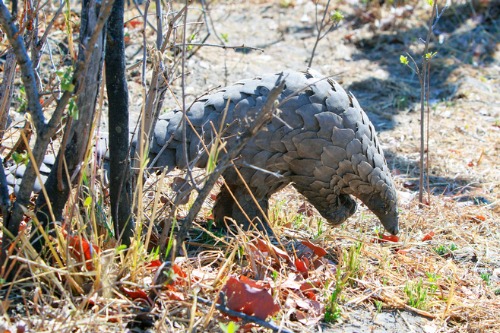

Beginning next year, China’s state insurance funds will stop covering traditional medicines made from pangolin scales, in a move that may help lower demand for drugs that threaten the already endangered animal.
According to a National Geographic report, the scales of pangolins are used in over 60 commercially produced traditional medicines by more than 200 pharmaceutical companies, citing data from the China Biodiversity and Green Development Foundation. These drugs are believed to cure ailments ranging from poor lactation in nursing mothers to circulatory system problems.
The high demand for pangolin scales has threatened all eight species with extinction, and poaching is commonplace. In 2013, a Chinese ship carrying over 10,000 kilograms of dead pangolins was seized in the Philippines. In February, Hong Kong customs officers intercepted an eight-ton shipment of pangolin scales originating from Nigeria.
The August 20 announcement by China’s National Medical Insurance and the Human Resource and Social Security Bureau, also removed cures derived from other endangered species from the list of medicines eligible for reimbursement by government-funded insurance. The species include hawksbill sea turtle, sea horse, coral, and saiga antelope.
The report added that China’s National Forestry and Grassland Administration is eyeing upgrading pangolins’ endangered status from Class II to Class I. This means that all trade of pangolins and pangolin-derived products must be approved by the national government and will be allowed only in certain circumstances, such as scientific research.
